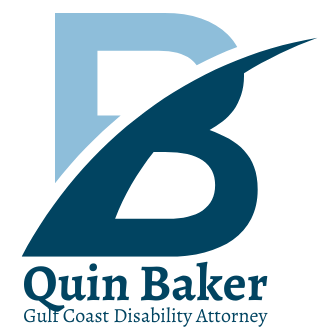How Severe Does Your Arthritis Need to Be to Qualify for SSD in Pensacola?
Social Security Disability is a federal program designed to provide financial assistance to individuals who are unable to work due to a qualifying disability. Arthritis, if severe enough, can be considered a disabling condition, making you eligible for SSD benefits. Consult with an experienced Pensacola disability lawyer to learn more about the process and take the necessary steps to get your application accepted and approved.
Types of Arthritis That Qualify for Disability in Florida
The following types of arthritis are usually considered for disability:
- Rheumatoid Arthritis
- Osteoarthritis
- Ankylosing Spondylitis
- Psoriatic Arthritis
- Systemic Lupus Erythematosus (SLE)
- Gout
- Juvenile Idiopathic Arthritis
Note that meeting a specific diagnosis alone may not guarantee eligibility for SSD. The severity of the arthritis and its impact on your ability to work are vital factors in the SSA’s evaluation. Comprehensive medical documentation, including records of treatments, symptoms, and their effects on daily activities, is essential when applying for disability benefits due to arthritis.
Meeting Medical Criteria for Arthritis and Social Security Disability Benefits
The Social Security Administration (SSA) evaluates the impact of arthritis on an individual’s ability to perform essential physical tasks required for employment. These tasks include sitting, standing, walking, kneeling, and utilizing fine motor skills.
Based on the limitations in these activities, you may be classified as capable of heavy, medium, light, or sedentary work. Even those close to retirement age may qualify for Social Security Disability benefits if they lack the qualifications for sedentary work as outlined in the Blue Book.
The best arthritis hospitals in Pensacola include the Baptist Hospital, Sacred Heart Hospital, and West Florida Hospital. To qualify for benefits, individuals with arthritis should exhibit symptoms such as swelling, pain, and restricted joint movement.
Blue Book’s criteria under Inflammatory Arthritis entail experiencing:
- Persistent inflammation or deformity of weight-bearing joints
- Inflammation or deformity involving multiple body systems or organs
- Ankylosing spondylitis
- Repeated manifestations of inflammatory arthritis
Qualifying for SSD with Arthritis in Pensacola
To qualify for SSD benefits due to arthritis, the severity of the condition needs to meet the criteria outlined by the Social Security Administration (SSA). These are a few key factors to consider:
- Medical Evidence: The SSA requires comprehensive medical evidence documenting the severity of your arthritis. This includes medical records, imaging studies, and reports from treating physicians.
- Inability to Work: Arthritis should render you unable to engage in substantial gainful activity (SGA). This means that your arthritis symptoms prevent you from performing work that earns a certain income threshold. In 2024, you will be considered gainfully employed if your monthly earnings are at least $1,550 per month.
- Duration of Disability: Your arthritis must be expected to last for at least 12 continuous months or result in death. This duration requirement ensures that only long-term and severe cases qualify for SSD benefits.
- Listed Impairments: The SSA maintains a listing of impairments, known as the Blue Book, which includes criteria for various disabling conditions, including arthritis. Meeting the specific criteria outlined in the Blue Book can strengthen your SSD claim.
- Residual Functional Capacity (RFC): The SSA will assess your residual functional capacity, which is your ability to perform work-related activities despite your arthritis. A lower RFC may increase your chances of qualifying for SSD.
Types of Benefits You Can Qualify for Arthritis
Social Security Disability Insurance (SSDI) Benefits
- Disability Benefits: The primary benefit is financial assistance for individuals who are unable to work due to a qualifying disability.
- Dependent Benefits: Certain family members, such as spouses and dependent children, may be eligible for dependent benefits based on your SSDI eligibility.
- Medicare: After a waiting period of 24 months from the onset of your disability, SSDI recipients become eligible for Medicare, providing health insurance coverage.
- Return to Work Incentives: SSDI includes various work incentives and support programs to encourage individuals to return to work or engage in vocational rehabilitation.
Supplemental Security Income (SSI) Benefits
- Income Assistance: SSI provides financial assistance to individuals with limited income and resources. It’s a needs-based program.
- Disability Benefits: SSI includes disability benefits for those who meet the eligibility criteria.
- Medicaid: SSI recipients are typically eligible for Medicaid, which provides health coverage for low-income individuals.
Additional Considerations
- Vocational Rehabilitation Services: Both SSDI and SSI recipients may be eligible for vocational rehabilitation services to help them return to work or adjust to new employment opportunities.
- Cost-of-Living Adjustments (COLA): Both SSDI and SSI benefits may be subject to annual cost-of-living adjustments to account for inflation.
Working with a Pensacola SSD Attorney Can Maximize Your Chances
A disability attorney is familiar with the complex SSD application process. They can guide you through the requirements, deadlines, and necessary documentation. They can also provide insights into the strength of your claim. An important aspect of a successful SSD claim is presenting compelling evidence of your disability. Your lawyer can help gather medical records, reports, and other documentation to strengthen your case.
Attorneys specializing in disability law are knowledgeable about the specific rules and regulations governing benefits, including qualifying factors. Their experience can be invaluable in ensuring your application is thorough and complies with the requirements. If your initial application is denied, a disability attorney can represent you during the appeals process. They can prepare a strong case for reconsideration or present your case before an Administrative Law Judge.
Protect Your Right to Disability Benefits with Our Seasoned SSD Attorneys
The dedicated Pensacola disability attorneys at Baker & Baker PLLC can ensure your rights are upheld and your claim is positioned for success. With a collective experience of decades in disability law, our lawyers have successfully represented numerous clients in obtaining the benefits they deserve. We take pride in our proven track record and commitment to client success. To schedule your free consultation, call us at 850-433-0888 or fill out this online contact form.

